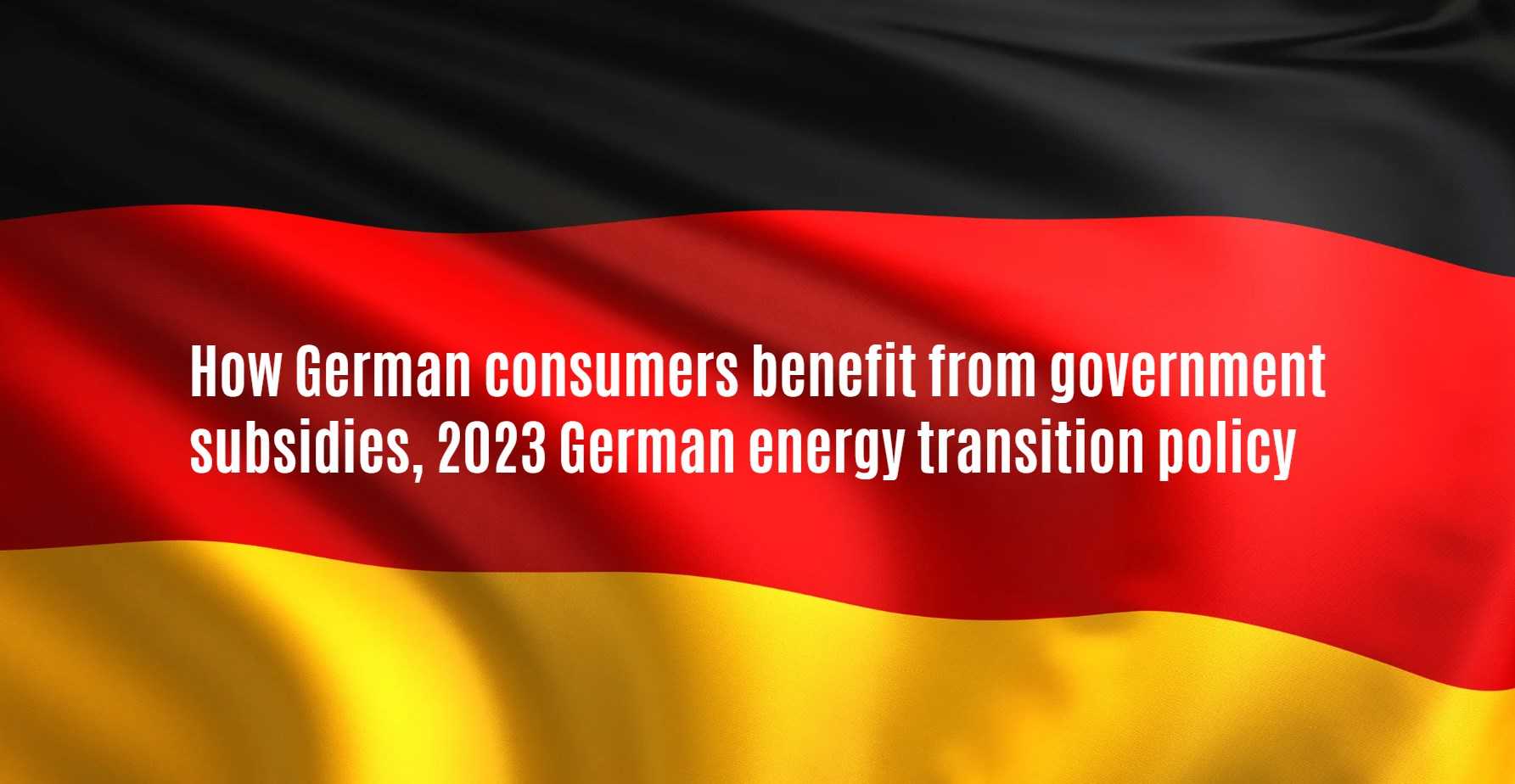In 2024, German consumers benefit significantly from government subsidies aimed at accelerating the energy transition. These subsidies support renewable energy projects, enhance energy efficiency, and lower electricity costs. By investing in solar, wind, and other sustainable technologies, the German government aims to reduce carbon emissions and promote energy independence.
Understanding Germany’s Energy Transition Policy
Germany’s energy transition policy, known as “Energiewende,” is a comprehensive strategy designed to shift the country towards a sustainable energy system. This initiative focuses on increasing the share of renewable energy sources while phasing out fossil fuels and nuclear power. The 2024 policy introduces various subsidies and incentives to encourage consumer participation in this transition.
Key Components of the 2024 Energy Transition Policy
- Subsidies for Renewable Energy Installations:
- Homeowners and businesses can receive financial support for installing solar panels, wind turbines, and biomass systems.
- The government offers direct grants and low-interest loans to make renewable energy investments more accessible.
- Energy Efficiency Programs:
- Subsidies are available for upgrading heating systems, improving insulation, and implementing smart home technologies.
- These programs aim to reduce overall energy consumption and lower utility bills for consumers.
- Electric Vehicle Incentives:
- The policy includes incentives for purchasing electric vehicles (EVs) and installing EV charging stations.
- Consumers can benefit from tax breaks and rebates that make transitioning to electric mobility more affordable.
- Grid Expansion and Modernization:
- Investments in grid infrastructure ensure that renewable energy sources can be integrated effectively.
- Consumers benefit from a more reliable electricity supply and reduced transmission costs.
Benefits for German Consumers
The 2024 German energy transition policy offers numerous advantages for consumers:
- Lower Energy Costs: By investing in renewable energy technologies, consumers can reduce their reliance on traditional energy sources, leading to lower electricity bills over time.
- Increased Property Value: Homes equipped with solar panels or energy-efficient systems often see an increase in property value, making them more attractive to potential buyers.
- Environmental Impact: Consumers play a crucial role in reducing carbon emissions, contributing to a cleaner environment for future generations.
- Energy Independence: By utilizing local renewable resources, Germany aims to decrease its dependence on imported fossil fuels, enhancing national security.
Challenges Ahead
While the benefits are substantial, several challenges remain:
- Initial Investment Costs: Although subsidies help mitigate upfront costs, some consumers may still find it challenging to afford initial investments in renewable technologies.
- Awareness and Education: Many consumers may lack knowledge about available subsidies or how to implement renewable solutions effectively.
- Regulatory Complexity: Navigating the various regulations and subsidy programs can be overwhelming for consumers without proper guidance.
Latest News
- The German government has announced an increase in funding for renewable energy projects as part of its commitment to achieving climate neutrality by 2045.
- Recent surveys indicate that consumer interest in solar panel installations has surged due to attractive subsidy programs launched this year.
- New initiatives are being introduced to simplify the application process for subsidies, making it easier for consumers to access financial support.
Redway Expert Comment
“As a leader in lithium LiFePO4 battery manufacturing, we recognize the vital role that government subsidies play in promoting renewable energy adoption among German consumers. These initiatives not only facilitate the transition to sustainable energy but also empower individuals to take charge of their energy consumption. Our advanced battery solutions are designed to complement these efforts by providing reliable storage options for renewable energy systems.”
Conclusion
The 2024 German energy transition policy represents a significant step towards a sustainable future. With government subsidies supporting renewable energy installations and efficiency improvements, consumers stand to gain both financially and environmentally. By embracing these opportunities, German households can contribute to a greener planet while enjoying lower energy costs and increased property values. For those looking to enhance their renewable energy systems with high-quality lithium LiFePO4 batteries, Redway Battery offers tailored solutions that meet modern demands.
FAQs
What are the main benefits German consumers gain from government subsidies in 2024?
In 2024, German consumers benefit from government subsidies that lower energy costs and promote renewable energy adoption. These subsidies support installations of solar panels and energy-efficient systems, leading to reduced electricity bills and increased energy independence. Additionally, they encourage investment in sustainable technologies, enhancing overall energy security.
How does the 2024 German energy transition policy impact household energy costs?
The 2024 German energy transition policy aims to lower household energy costs by removing the EEG levy, previously paid by consumers to support renewable energy projects. This shift means that funding for renewables will come from the federal budget, which is expected to reduce electricity prices for households while promoting a more sustainable energy system.
What specific subsidies are available for renewable energy projects in Germany this year?
In 2024, Germany offers various subsidies for renewable energy projects, including financial incentives for solar panel installations and heat pumps. Homeowners can receive direct grants or tax reductions for investing in renewable technologies, making it more affordable to transition to sustainable energy solutions and improve energy efficiency.
How do German government subsidies influence the adoption of electric vehicles?
German government subsidies significantly encourage electric vehicle (EV) adoption by offering financial incentives such as purchase grants and tax breaks. These subsidies lower the initial cost of EVs, making them more accessible to consumers. Additionally, investments in charging infrastructure further facilitate the transition to electric mobility.
What are the long-term goals of the 2024 German energy transition policy?
The long-term goals of the 2024 German energy transition policy include achieving 80% of electricity consumption from renewable sources by 2030 and nearly 100% by 2035. The policy aims to enhance energy security, reduce reliance on fossil fuels, and promote sustainable economic growth while addressing climate change effectively.




